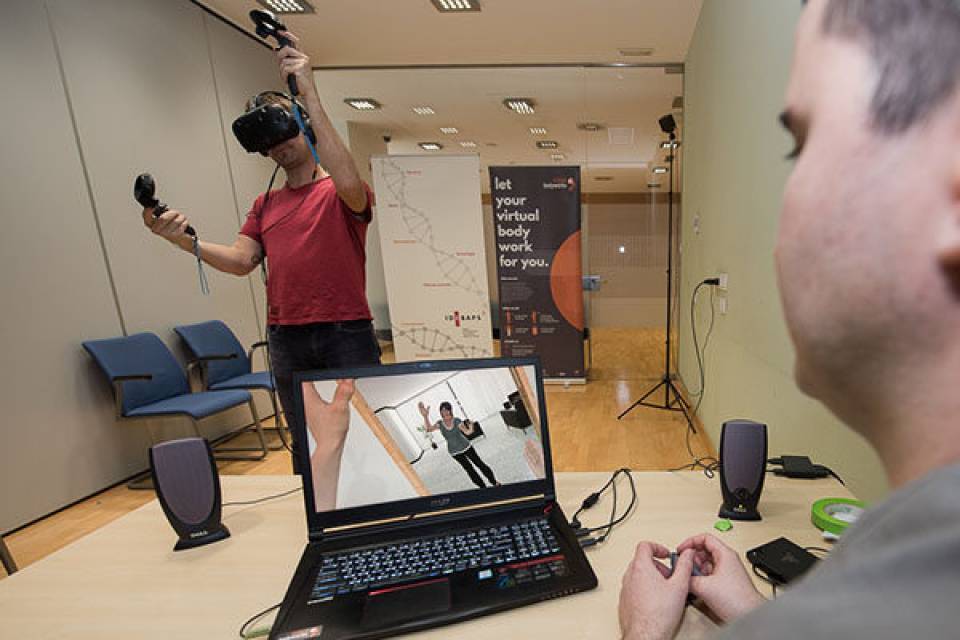The results of the study have been presented today in a press conference in which have participated Mavi Sanchez-Vives, ICREA researcher at IDIBAPS, where she leads the Systems Neuroscience team; Mel Slater, Director of the Event Lab at the Faculty of Psychology of the University of Barcelona and co-author of the article; the first author of the study, Sofía Seinfeld, researcher in the same team and at the Event Lab (Laboratory of Experimental Virtual Environments for Neuroscience and Technology) at the University of Barcelona; and Elías Campo, Director of IDIBAPS.
Violent acts perpetrated against other people are related to a lack of empathy or difficulty of the aggressors to put themselves in the victim's shoes. Although there are studies that show that violent people have difficulties identifying emotions such as fear or anger in others, there are problems due to the methodology used to determine empathy and due to the ethical problems posed by these types of study.
The research published in Scientific Reports constitutes a new approach to the study of empathy and aggression in violent people, since it allows participants to experience a virtual violent situation from the first person perspective of the victim. The work is based on studies where participants perceive a virtual body that replaces their own body in immersive virtual reality. "Virtual bodies can be drastically different from those of the participant, but even so, they experience a strong subjective illusion of virtual body ownership. These illusions influence the participant by altering perceptions, attitudes and behaviors," explains Mavi Sanchez-Vives.
The impact of changing perspective on domestic violence
The main objective of the study was to investigate some of the mechanisms underlying a specific type of violent behavior: domestic violence. The researchers analyzed the impact of this virtual reality method on the recognition of emotions in two types of people, male domestic abusers and controls. Before and after the virtual reality session, participants, 20 abusers and 19 controls, completed an emotion recognition test to determine whether the experience changed their perception and empathy.
In the session, the participants entered a virtual environment in which their body was replaced by that of a virtual woman and they went through a process of assimilation and identification with this virtual body. From this perspective, they saw a virtual man enter the scene and engage in violent behavior, both through gestures and the way of speaking, and he invaded, in a progressive way, the personal space of the victim. "The environment is interactive since the virtual abuser looks directly at the participant and screams ‘Shut up!’ if he speaks, or ‘Look at me!’ if he looks away," explains Mel Slater, co-author of the study.
The results show that abusers, prior to the virtual reality exposure, have a significantly lower capacity than controls to recognize fear in woman faces. "After the experience in the body of a woman, through the virtual reality session, they improved their ability to recognize that fear," explains Sofía Seinfeld, first author of the article.
"In this work we demonstrate, for the first time, that by changing the perspective of aggressive people through immersive virtual reality, one can modify processes such as the recognition of emotions, which is believed to be behind this specific form of violence", explains Mavi Sanchez-Vives, coordinator of the study.
Study reference:
Offenders become the victim in virtual reality: impact of changing perspective in domestic violence.
Seinfeld S, Arroyo-Palacios J, Iruretagoyena G, Hortensius R, Zapata LE, Borland D, de Gelder B, Slater M, Sanchez-Vives MV.
Sci Rep. 2018 Feb 9;8(1):2692. doi: 10.1038/s41598-018-19987-7.

